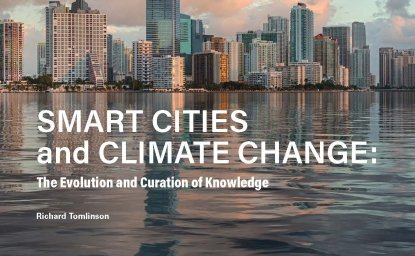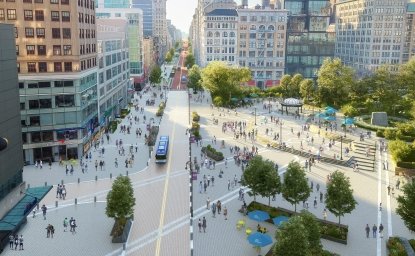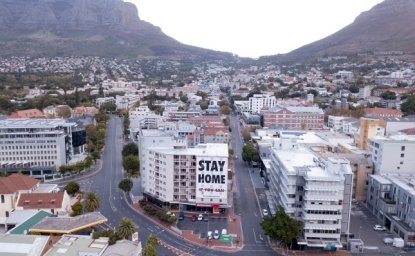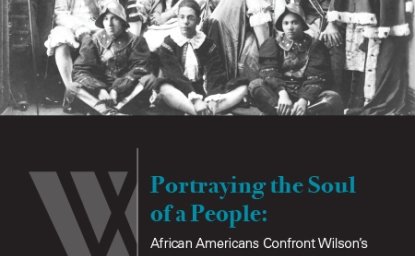Urbanization and Security

Presented February 8-9, 1999, at the Woodrow Wilson Center for the Comparative Urban Studies Project's Research Working Group on Urbanization, Population, the Environment, and Security funded by the U.S. Agency for International Development. These policy briefs do not represent an official position of the Woodrow Wilson International Center for Scholars or the U.S. Agency for International Development. Opinions expressed are solely those of the authors.
This paper will argue that no consistent or meaningful relationship exists between urbanization and security. For a start, the words urbanisation and security do not mean a great deal because they embrace too many cross-cutting ideas and processes. Second, researchers have found few consistent correlations between the numerous dimensions of security and urbanisation. Third, insofar as one can find a close correlation, independent variables usually account for the statistical relationship. Fourth, even when a direct correlation between security and urbanisation exists, the direction of causation is by no means obvious. Finally, every country and every city contains so much internal variation that most generalisations across nations, let alone across regions, are rendered meaningless.
The lack of clear linkages between urbanisation and most dimensions of security is true at most scales of analysis, across most countries and over time. Even when correlations can be found they do not explain very much. This key point can be illustrated by a trite example. Personal security is higher in the most urbanised countries than in the least urbanised countries. It is safer, in terms of most social and economic variables, to live in Britain, Japan or Switzerland than to live in most parts of Africa or India. People live much longer, eat better, and are more literate in urbanised countries than in less urbanised countries. But, what does this correlation prove? It proves absolutely nothing about the link between urbanisation and security because it fails to explain how the links between urbanisation and variables like life expectancy, nutrition and literacy actually operate. No doubt, urbanisation often contributes, and sometimes detracts from, the quality of people's lives, but who can tell by how much?
If we are interested in the link between urbanisation and different forms of security we should be asking different questions. Why do some cities have more people living in poverty than others with similar levels of per capita income? Why is it that crime and violence are particularly high in one city and very low in another? Why are living conditions for the majority so much better in some cities than in others? Comparing broadly comparable cities, why do some do well and some do badly on a particular indicator of welfare and security?
Perhaps most critical of all is to examine why, despite our hugely impressive economic and technological progress over the last century, we have not done a better job in removing poverty. Why are so many urban people living so badly and why is inequality increasing rather than decreasing? Unfortunately, I suspect that we know the answer to that question and the answer does not have much to do with urbanisation. Sending the proletariat back to the countryside or bringing the peasants to the city is not going to make a huge difference.
Of course, none of this means that cities do not have to be taken seriously. Because urbanisation does not produce poverty, crime and political protest either automatically or inevitably, does not mean that poorly managed urbanisation cannot stimulate undesirable forms of social development. What is needed across the globe, and particularly in the poorer parts of the world, are sensible urban policies backed by adequate resources. Providing that the shanty towns receive electricity and water, the poor have the opportunity to work, the transport system allows them to get to work and urban wealth is not distributed so unequally that the system appears wholly inequitable, then cities will continue their historical role of helping to improve the human condition.
What will make a difference is to introduce policies that give people hope for a better future, assuring them that their children will lead better lives than they have done. Satisfying that criterion requires that they have access to work, services and transport. It requires that their lives are seldom disrupted by extreme events; preventing human-induced disasters, ensuring that the economic situation does not fluctuate violently, guaranteeing that governments are not constantly changing and making sure that prices are under control. Satisfying my criterion for ensuring security also requires fairness, not in the sense of total equality, but in giving everyone some kind of life chance and removing any perception that everything is loaded against the disadvantaged. In turn, this means that crime must be under control, that there is a relatively efficient and honest police force, that blatant forms of social discrimination are reduced, and that people with genuine complaints have someone in power to whom they can appeal with some expectation that something will be done. Of course, rather few cities in the world satisfy most of the conditions on that list. Nevertheless, in a rapidly urbanising world, it is only by satisfying those conditions that we can be sure that business will proceed as usual. Otherwise, what has in the past been predominantly a process of sustained, harmonious and secure urban development, will not remain so in the future.

Urban Sustainability Laboratory
Since 1991, the Urban Sustainability Laboratory has advanced solutions to urban challenges—such as poverty, exclusion, insecurity, and environmental degradation—by promoting evidence-based research to support sustainable, equitable and peaceful cities. Read more

Explore More
Browse Insights & Analysis
Smart Cities and Climate Change: The Evolution and Curation of Knowledge

Coronavirus Shifts Car-Free Policy into High Gear

